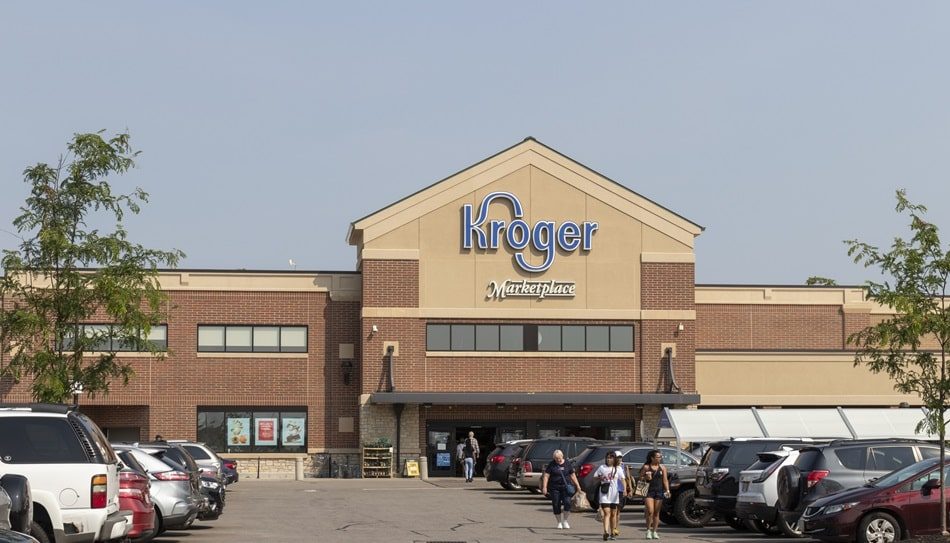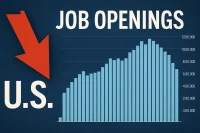The proposed $24.6 billion merger between grocery giants Kroger and Albertsons faced a major setback as both federal and state judges issued rulings to block the deal.
In Oregon, US District Court Judge Adrienne Nelson granted the Federal Trade Commission’s (FTC) request for a preliminary injunction, effectively halting the merger.
Judge Nelson ruled that the merger was “presumptively unlawful,” citing concerns that it would significantly reduce competition.
She wrote:
“The grocery chains engage in substantial head-to-head competition, and the proposed merger would remove that competition.”
The ruling marks a win for federal regulators, who argued the merger would harm consumers and workers by driving up prices and reducing quality.
Need Career Advice? Get employment skills advice at all levels of your career
State-Level Opposition Grows
Shortly after the federal ruling, a Washington State judge issued a similar decision, blocking the merger on grounds of potential harm to competition.
Another legal challenge in Colorado remains pending.
These combined rulings present significant hurdles for Kroger and Albertsons, though the companies are not yet required to abandon their plans.
Judge Nelson emphasized that the federal injunction “pauses” the merger while awaiting further review during the FTC’s administrative process.
Looking for a job? Visit whatjobs.com today
Regulatory Concerns and Antitrust Push
The FTC’s lawsuit was filed with the support of attorneys general from eight states and the District of Columbia. It is part of a broader effort by the Biden administration to curb corporate consolidation across various industries.
FTC Chair Lina Khan has prioritized antitrust enforcement, drawing both praise and criticism for challenging deals involving major players in tech, airlines, and retail.
Douglas Farrar, an FTC spokesperson, said the ruling “protects competition in the grocery market” and helps prevent rising prices for consumers.
Hiring? Post jobs for free with WhatJobs
Arguments For and Against the Merger
Kroger and Albertsons argued the merger would enable them to better compete with industry leaders like Walmart and Amazon.
Together, the combined entity would have controlled 13 percent of the US grocery market, compared to Walmart’s 22 percent.
Albertsons CEO Vivek Sankaran claimed the merger would prevent store closures and layoffs.
Tony Silva, Albertsons’ vice president of strategic initiatives. said:
“We hope to chip away at the bigger target, which is Walmart.”
However, FTC lawyers countered that the promises of lower prices were unenforceable. They argued reduced competition in over 1,000 communities would likely lead to higher prices and diminished quality.
Labor unions also expressed concerns, suggesting the merger would weaken their bargaining power by reducing competition between the two grocery giants.
Shareholder and Market Reactions
The legal hurdles have raised questions about the merger’s feasibility.
Kroger CEO Rodney McMullen acknowledged the challenges, stating that while the company is “super excited about Albertsons,” it could succeed without the merger.
Kroger shares rose by 5 percent following the rulings, while Albertsons shares fell by over 2 percent, reflecting market uncertainty about the deal’s future.
What’s Next for the Merger?
While preliminary injunctions typically spell the end of major mergers, Kroger and Albertsons may continue to pursue their case during the FTC’s internal administrative proceedings.
However, Kroger’s recent lawsuit challenging the constitutionality of the FTC’s process adds another layer of complexity.
Legal experts suggest that ongoing litigation, coupled with mounting expenses, could prompt shareholders to demand an end to the merger efforts.
Implications for the Grocery Industry
The blocked merger underscores the FTC’s commitment to antitrust enforcement and its potential impact on corporate consolidation in the grocery sector.
With Walmart, Costco, Kroger, and Albertsons already controlling half of US grocery sales, regulatory scrutiny on future mergers in the industry is expected to remain high.




